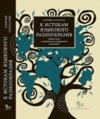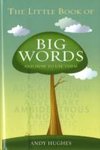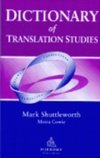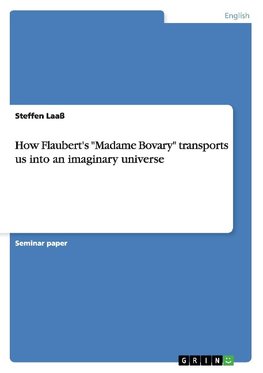
-
 Anglický jazyk
Anglický jazyk
How Flaubert's "Madame Bovary" transports us into an imaginary universe
Autor: Steffen Laaß
Seminar paper from the year 2005 in the subject American Studies - Literature, grade: 2,0, University of Nottingham (School of English Studies), course: Cognitive Poetics, 9 entries in the bibliography, language: English, abstract: And indeed, what is better... Viac o knihe
Na objednávku, dodanie 2-4 týždne
16.28 €
bežná cena: 18.50 €
O knihe
Seminar paper from the year 2005 in the subject American Studies - Literature, grade: 2,0, University of Nottingham (School of English Studies), course: Cognitive Poetics, 9 entries in the bibliography, language: English, abstract: And indeed, what is better than to sit by one's fireside in the evening with a book, while the wind beats against the window and the lamp is burning? ... One thinks of nothing ... the hours slip by. Motionless we traverse countries we fancy we see, and your thought, blending with the fiction, playing with the details, follows the outline of the adventures. It mingles with the characters, and it seems as if it were yourself palpitating beneath their costumes.
(Madame Bovary, part II, chapter 2)
This quotation elegantly sums up what reading literature should be like: most enjoyable. We find people reading on the train, at the bus stop, in bed, in the waiting room. And every reading is unique. That is why we usually can remember the circumstances under which we have read a book. And the mere fact that people can be carried away by the written word is fascinating - and worth further investigation.
This essay is about reading, to be more precise about reading fiction. It is an attempt to explore how we read, or process, literature. We want to investigate how we comprehend fiction and how we monitor the tracking of characters and events in a story. Doing this, we will have to lay much emphasis on the reader as an individual being fully conscious of what and how he is reading. For this exploration, cognitive poetics with its relatively new way of thinking about literature will provide the necessary frameworks, one of which I will apply and discuss in more detail: Emmott's contextual frame theory.
One question that I hope I will be able to answer in this paper is: How does fiction transport the reader into an imaginary universe? The approach to this question is not easy as I will have to draw on a number of interrelated disciplines such as linguistics, psychology and philosophy. The text I will 'exploit' for this end is Gustave Flaubert's masterpiece Madame Bovary (1857) which I have a particular relation to. So this essay will also be a very personal evaluation on literary reading.
We will proceed as follows: First of all, we will explore the opening to Flaubert's text to analyse it on the basis of Emmott's contextual frame theory (inductive approach). Afterwards, we will apply selected key concepts of this theory to suitable passages of the novel (deductive approach). Then we will engage more fully with some theoretical assumptions of cognitive poetics. Afterwards we will elaborate on the concept of emotion.
- Vydavateľstvo: GRIN Verlag
- Rok vydania: 2008
- Formát: Paperback
- Rozmer: 210 x 148 mm
- Jazyk: Anglický jazyk
- ISBN: 9783640146741
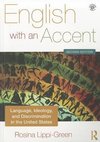

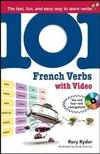
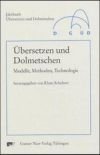
 Nemecký jazyk
Nemecký jazyk 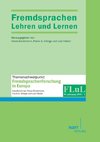

 Ruský jazyk
Ruský jazyk 

